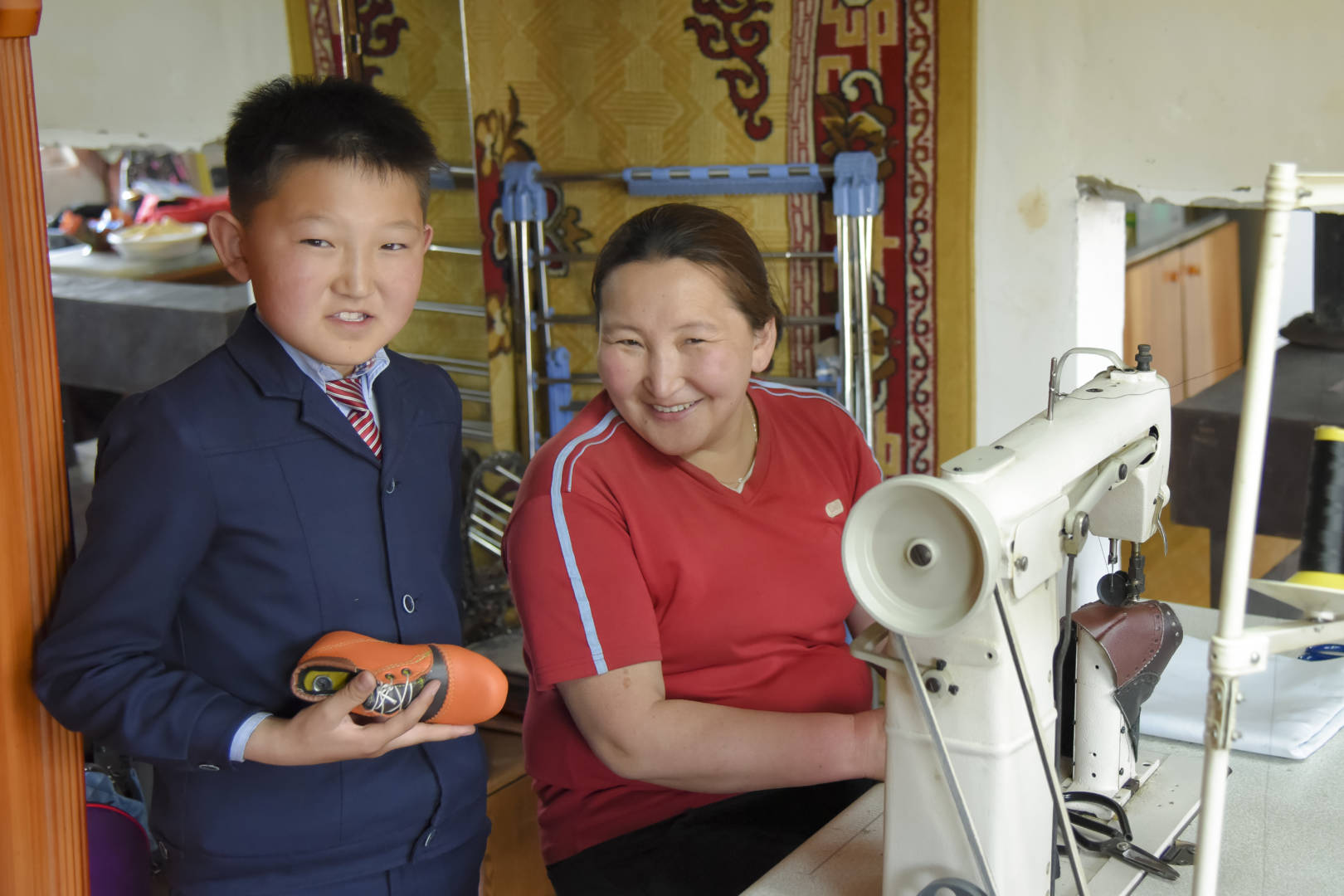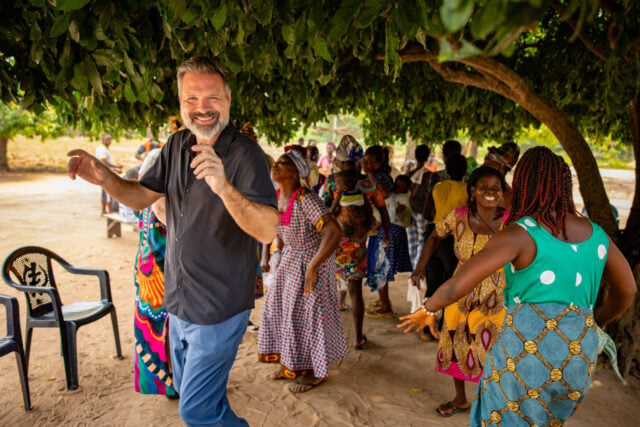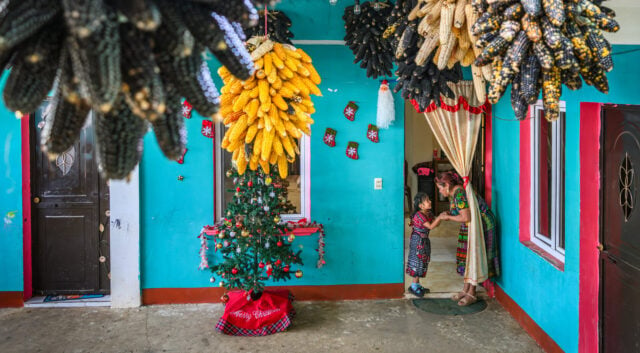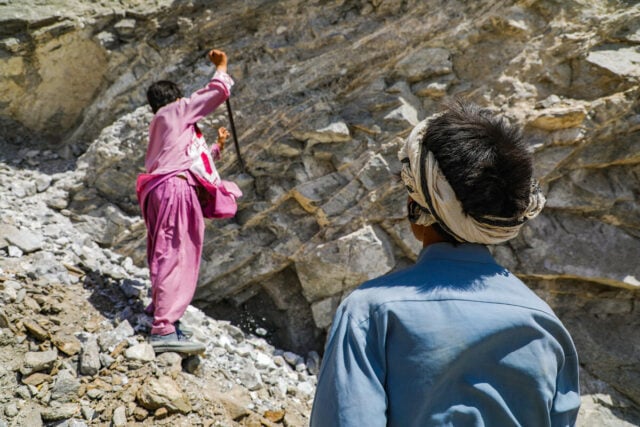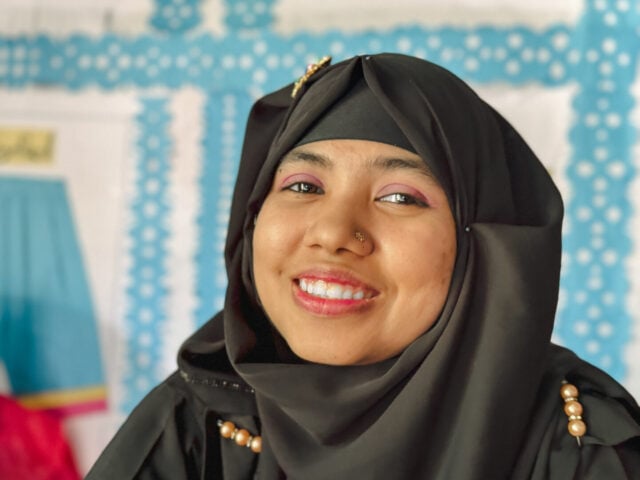Baasandorj’s notebook holds his dreams. The sixth-grader has documented in detail his future house, car, dog, and even his garden’s flowers. He excels at math and wants to be an economist for a bank.
His parents are award-winning shoemakers in Mongolia. His three siblings joined the family business after completing their studies. His sisters studied sewing, and his brother studied fashion at the university so he could learn how to design shoes.
“A happy family is our family because we laugh and joke with each other,” says Baasandorj.
They seem like an ideal family, but that has not always been the case.
Searching for a better life
Like many families in Mongolia, they were nomadic herders. Baasandorj’s father also made shoes by hand to supplement the family income.
“Life was hard in the countryside — herding animals to the point where life had no meaning,” says Baasandorj’s mother, Oyuntsetseg.
In 2000, they moved to the city in search of a better life.
“I was worried about my children,” Oyuntsetseg says. “I thought about how I was going to take care of them. During that difficult time, I wished that I could have my own business.”
So Oyuntsetseg started to make shoes with her husband, and she also found work at the World Vision office as a cleaner. There, a coworker encouraged her to enroll Baasandorj in its child sponsorship program. Her decision to do so changed their lives forever.
The difference child sponsorship makes
World Vision paid for the children’s medical expenses and provided supplies for school. His sponsor also sent many letters and gifts, including clothing and toys.
Then World Vision gave them an electric sewing machine. Now, instead of making one pair of shoes a day by hand, the family can now make five times as many in a variety of styles.
“From that moment, our business grew,” Oyuntsetseg says. “Now we have six sewing machines, and life for my children is totally different.”
Baasandorj has thrived. He has won many medals and certificates at school for math, singing, and reading. His teacher even said, “Baasandorj, let’s give the other children a chance to answer the questions!”
And when a classmate’s house burnt down, he collected money from other students. They each donated 1,000 tugriks (about 50 cents), which they had been saving for video games.
Hope for the future
Oyuntsetseg herself earned a certificate in shoe-making at one of the capital’s factories. With her new skills, she is branching out to create key rings made from the scraps of leather left over from the shoes.
“When I was sewing by hand, we lived one day at a time with no vision for the future. I only thought about how to survive for today,” Oyuntsetseg says. “Now, we can support our children’s education. I have more time to spend with my children, and we were also able to buy a pickup truck and a car. Now we can meet our needs, and I don’t worry about my children anymore.”
Baasandorj’s notebook holds his dreams. But they are only possible because of the hard work of his parents and the care of his World Vision sponsor.
